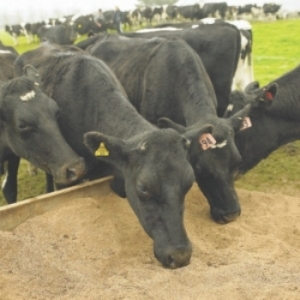The Solutions for dairy sector
Farmer mindset on feed inputs shifting

“Equally, if they think their herd can put more milk in the vat, that’s probably right too,” says the Tasmania-based animal nutritionist.
“I believe that dairy farmers are intelligent people who want to make rational business decisions, therefore they require sound information and exposure to industry achievement.”
Gale says the prevailing mindset among many dairy farmers relative to dairy nutrition and feed inputs is beginning to shift as they become more educated around the topic.
“Familiarity is a type of cultural architecture that we are all brought up with,” he says.
“If farmers feel no need to change their production system, fair enough. But, if farmers face a challenge and need to do something else to improve their cows’ nutrition and welfare, they need to realise that they can do so. It will require them to carry out different activities and make strategic financial investments however.”
Gale says that farmers’ adjusting of their mindset, before they begin exploring supplementary feed options for their herd, is key to achieving milk production increases.
He likens farmers continuing a ‘nothing has changed’ attitude with a comment from famed scientist Albert Einstein. Einstein once said that if someone keeps on performing the same action, but expects the outcome to change, that’s a definition of insanity.
“Often a dairy farmer has an issue that they want to address,” says Gale.
“We’ll say yes, we can help, but there has to be a willingness to do something different. Farmers have to resolve this in their own minds first.”
Having overcome what can often be a type of fearfulness [around change], dairy farmers can then get on with a supplementary feeding due diligence, figuring what activities they’ll have to do differently and how to incorporate it into the pasture management systems’ employed on the farm.
“In other words, to change outcomes on a farm, you have to change the activities carried out on the property,” he says.
“Such a change of philosophy is no small matter, but that’s the job of people like myself; to help support that change of mind, to suggest there are actions farmers can or shouldn’t take.”
Gale says that lifting the production of cows that are genetically quite capable of doing so can be achieved relatively easily – as long as farmers give themselves permission to begin thinking differently.





















